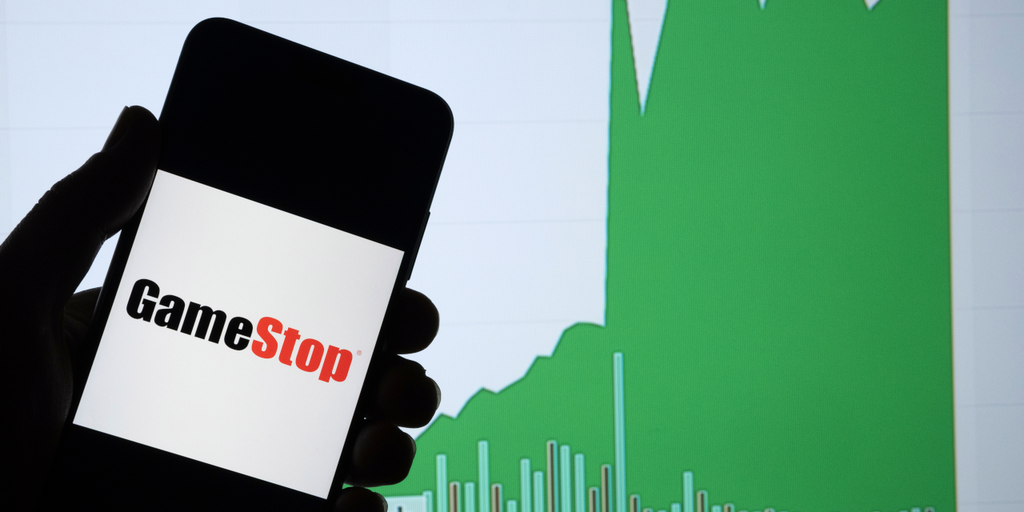Bussiness
GameStop Stock Price Surges 37%—Even as Roaring Kitty Remains Silent – Decrypt

GameStop stock (GME) is surging once again—but Roaring Kitty is still missing in action.
Coming in hot after the holiday weekend, GME surged well over 30% Tuesday on news that the video game retailer netted nearly $1 billion from a strategically timed sale of its own stock, during its unexpected rally earlier this month.
That rally—during which GME nearly quadrupled in value—was spurred by the apparent online return of Keith Gill, aka Roaring Kitty, a meme stock influencer who inspired a brigade of retail investors to short squeeze GME in 2021.
Earlier this month, Gill’s Twitter account suddenly began cryptically posting after almost three years of silence. An ensuing frenzy surrounding the posts pumped not only GME, but related crypto tokens and other meme stocks like AMC. Then, five days into a posting spree, Roaring Kitty went silent again.
Before the music died, however, GameStop filed to sell 45 million new shares of common stock on May 17, cashing in on the phenomenon. The move sent GME plummeting some 30%; today, however, news that the sale netted the company some $933 million appears to have reinvigorated investors.
GME stock surged as high as $26.20 today, a 37% bump from market’s close on Friday. At writing it has settled down to $23.19, a 22% net increase since the holiday weekend.
That recovery, though, brings GME nowhere near the price it hit at the peak of the frenzy induced by Roaring Kitty’s apparent return. Two days after the influencer’s account reactivated on Twitter in mid-May, GME surged above $60.
Ever since going silent on May 20, Roaring Kitty’s social media accounts have remained dormant. Keith Gill has given no public explanation as to why he began posting again; in fact, he hasn’t even confirmed it actually was him posting.
Still, Gamestop appears to have benefited magnificently from the saga, despite its anticlimactic conclusion. GME is currently trading at over twice the price it was just a month ago.
Edited by Andrew Hayward







:max_bytes(150000):strip_icc()/roundup-writereditor-loved-deals-tout-f5de51f85de145b2b1eb99cdb7b6cb84.jpg)


